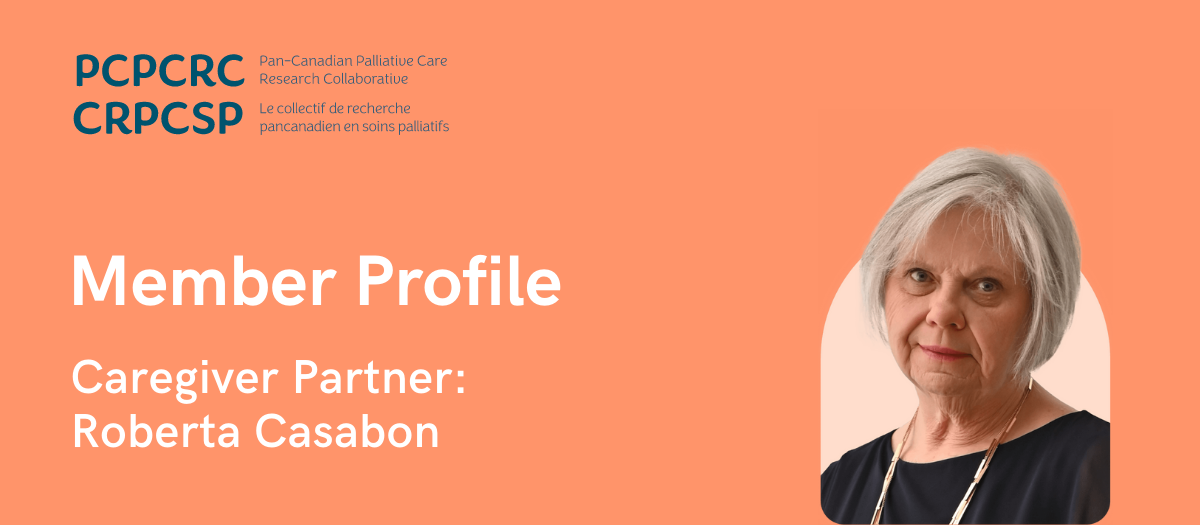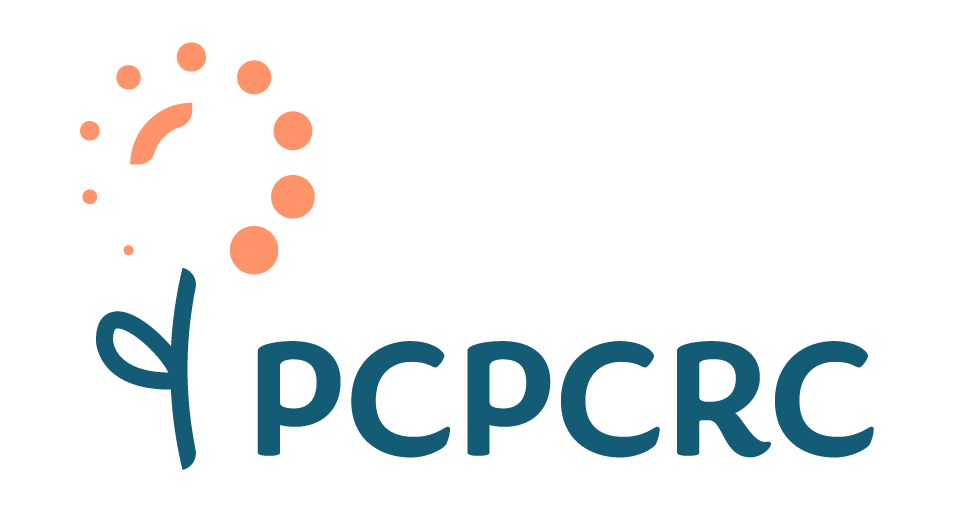
The Pan-Canadian Palliative Care Research Collaborative (PCPCRC) is recruiting additional patient or caregiver partners to help shape the future of palliative care.
The primary role of a patient/caregiver partner is to ensure the PCPCRC and its members’ studies are patient-centered. The patient/caregiver partner brings their personal experiences to help us focus on meaningful patient outcomes, understand the patient’s point of view, and develop effective ways to communicate our studies with patients.
Roberta Casabon is a caregiver partner at PCPCRC. She has spent the last 12 years using her voice to educate researchers about her lived experience, which can have significant downstream impacts on the experiences of patients and caregivers across Canada.
“Caregivers don’t realize the value of their lived experience,” she says. Too often, because they put the patient ahead of themselves, they don’t acknowledge their important role in the care journey and forget that their experience matters, too.
“The patient leaves an appointment focused on their condition,” explains Roberta. “The caregiver leaves with the responsibility of ensuring they follow through with everything the doctor recommended.”
Roberta understands this experience well. She supported her husband through prostate cancer, right up until the end of his life. She went to critical appointments with him, sat alongside as he completed questionnaires, and helped monitor his condition. “I always felt there should have been a questionnaire for me, as well,” she says. “Because how he rated his pain and how I would rate his pain were two different levels.”
Roberta’s experience is integral to her contribution at PCPCRC, but she didn’t initially set out to change the healthcare system. She just wanted to volunteer and give back to the community that supported her and her husband. This prompted her to call Prostate Cancer Canada — to learn how she could become involved. Little did she know this would put her on a path towards roles in peer navigator programs, several pan-Canadian and global committees, and her current involvement with the PCPCRC. “I am living proof of how a single phone call can change the trajectory of one’s life,” she says.
Roberta believes that, if you’re willing to speak up, you can make a difference at the PCPCRC. You’ll have a say in how research is conducted and what researchers should investigate. You’ll also help determine who should win the annual PCPCRC Seed Funding Competition, which allocates funds to promising palliative care research projects.
“Tell your story,” says Roberta. “Along with the medical team, you can change the treatment, the timelines, and the interactions with patients and families.”
Want to become a patient or caregiver partner? Learn more about how to become involved.

